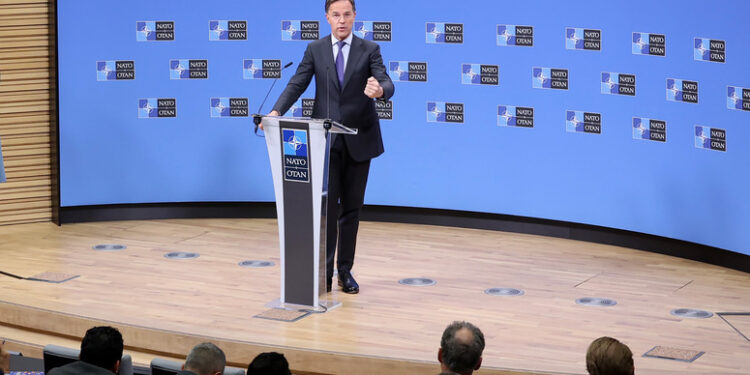Xabier González Barkos
NATO headquarters in Brussels hosted the meeting of NATO foreign ministers on April 3, 2025, in a context marked by geopolitical tensions, uncertainties in transatlantic relations, and growing questions about the United States’ commitment to European security.
Chaired by NATO Secretary General Mark Rutte, the meeting was attended by ministers from the 31 member states, as well as U.S. Secretary of State Marco Rubio. Their presence drew special attention, as President Donald Trump’s recent statements about a possible U.S. withdrawal from NATO have sown doubts among European allies. Rubio, however, attempted to allay these concerns, asserting that Washington remains committed to collective defense, although he urged European countries to assume a greater financial burden in the Alliance.
US Demand and Trade Tensions
One of the key points discussed at the meeting was the US call for a significant increase in defense spending by allies. Rubio proposed that NATO countries aim for 5% of GDP allocated to security, well above the 2% threshold currently met by only a few states. This demand responds to the White House’s interest in reducing the US’s financial influence within NATO and strengthening European military capabilities.
At the same time, the meeting took place amidst a climate of economic tensions between both sides of the Atlantic. The imposition of 20% tariffs by the US on European products, especially industrial and agricultural products, has been met with strong criticism. French President Emmanuel Macron called these measures “brutal and unfounded,” warning that Europe could respond with trade retaliation if Washington does not reverse its protectionist policy.
Ukraine and Relations with Russia
The conflict in Ukraine remains one of the Alliance’s greatest strategic concerns. During the meeting, several ministers expressed concern about the US’s unilateral approach in talks with Moscow, which has left European allies on the sidelines. NATO reiterated its commitment to continue supporting Kyiv, with more than €20 billion pledged in the first months of 2025, but concerns are growing about the role the Europeans will play in a possible diplomatic resolution to the conflict.
Spain’s Participation
Spanish Foreign Minister José Manuel Albares held a prior conversation with Rubio in which bilateral relations and cooperation on security and trade were discussed. Spain, like other NATO members, has been under pressure to increase its defense spending, something that Pedro Sánchez’s government is evaluating with caution, given the impact it would have on public finances.
Conclusion
The ministerial meeting made it clear that NATO is undergoing a phase of redefinition. While the US pushes for greater defense spending and adopts trade measures that affect its allies, Europe seeks to maintain internal cohesion and ensure its voice is heard in global strategic affairs. In this unstable balance, the Alliance must demonstrate that its unity remains its greatest strength in an increasingly polarized world.







